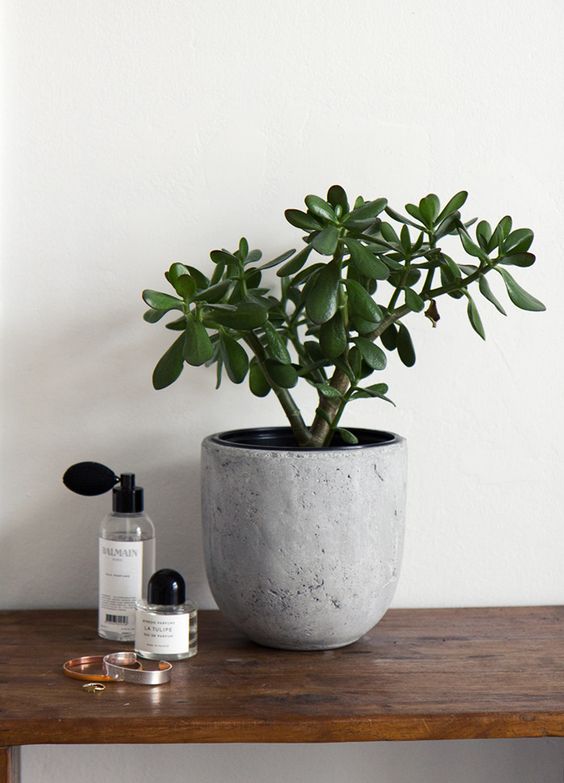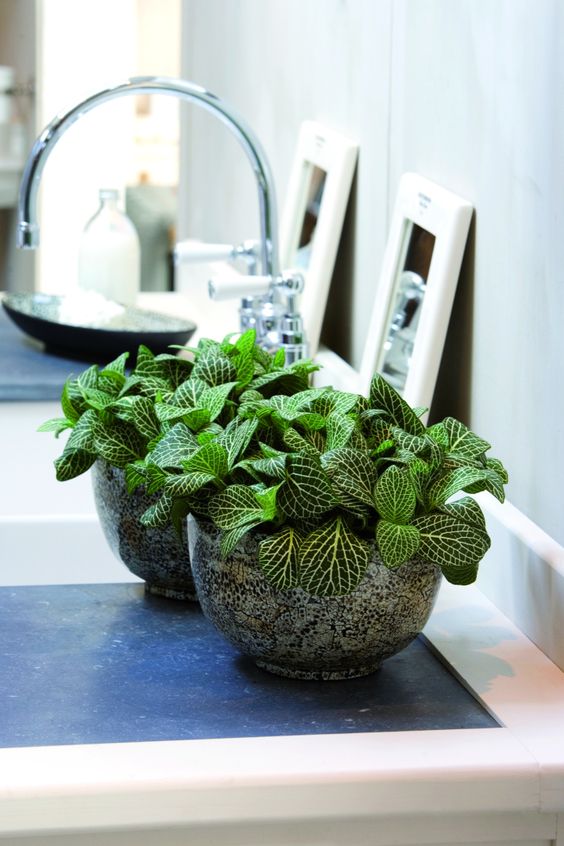Using plants in the home not only makes a space look great, but they perform some other fantastic environmental roles including cleaning the air of toxic VOC’s and positively influencing individual’s mental state. So using plants in your new baby nursery or children’s room can have a great positive impact on their future development.
Of course, there is a sneaky unspoken rule among the little ones that if it can get close enough, it will go straight to the mouth whether that’s the dog biscuits, the tv remote or your car keys. With that being the case, it is essential your choice of greenery for your nursery is safe for both your baby’s health and your peace of mind.
Read on through our collection of 7 non-toxic, air-cleaning plants that will make any space look great and are safe for the dreaded chomp.

Spider Plants: http://www.apartmenttherapy.com
Spider Plant
A Spider plant is a common name for several different house plants but, most commonly refers to the Chlorophytum comosum. It’s so popular because it’s very easy to care for and features beautiful grass-like leaves ranging from pale to emerald green. It grows up to 60cm and has long narrow leaves. What’s even better about this guys is as it grows, it is easily propagated for use in other rooms around the home.
The spider plant is an excellent choice for air purification, it’s easy to grow, even in low light conditions and it doesn’t need a lot of love. It is also completely safe for children and all pets. Although, cats and dogs do like to eat the spider plant due to the taste, and have been known to eat enough to make them feel a little queazy.

Dracaena
If you’re looking for a large feature plant, a Dracaena is a perfect option. It comes in several varieties, all of which are safe for your nursery. It is especially fantastic for theming your little one’s jungle or African safari room with its distinctly exotic feel. This one is not so safe for the animals, so if you’ve got babies of the 4-legged variety, give it a miss.
Jade Plant
Jade plants make for great succulents, and in the garden or a large container with the right conditions, they can grow into large shrubs. Care is simple; they need a warm sunny position and a splash of water once or twice a week. A great spot is on a northerly aspect window sill (in the Southern hemisphere of course). Don’t water your jade plant on a schedule. Rather, water your jade plant when the top of the soil is just dry to the touch.
A great little bonus of this little guys is Jade plants are considered to be symbols of good luck and is believed to bring you money!
Donkey’s Tail
Like the Jade plant, the Donkey’s tail is a common succulent with little care or watering requirements. As a bonus, the are pretty forgiving if you forget to water them! Once again, they do need more sunlight, though, so they’re best by a window. They are quite fragile, however, and the stems and leaves are very brittle and readily break off when touched. So if your baby is all hands and feet, perhaps look for a slightly tougher option. The good news is, any breakages can be easily propagated and will regrow.
African Violet
As its name implies, the African violet is an African native which makes it a little trickier to grow than many other houseplants. It can be a little particular in its lighting requirements, but persistence is the key. The violets can be propagated from leaf cuttings, and root rather quickly so you’ll never need to buy more than two with a lifetime supply of leaves that will provide you with a whole collection.
Boston Fern
Fern’s are tricky, some are extremely toxic to animals and humans, others are not. The Boston Fern is an excellent example of the latter but ensure you check the label carefully to ensure you’re buying the correct species. It has frilly leaves and long hanging fronds, and it`s easy to see why this houseplant is widely admired.
Boston ferns prefer a cool location with higher humidity and indirect light and go well in a hanging pot suspended from the ceiling in the kid’s bathroom. If placed in dryer locations such as a bedroom, a regular foliage misting and damp soil will help it thrive.
Fittonia or nerve plant
A delicate little shade lover perfect for micro pots and terrariums. There are a few different types available all with a variety of small leaf sizes; the fittonia loves humid and low-light conditions. Misting the foliage may be required to maintain humid-like conditions and it likes well drained moist soil, but not too wet. Water moderately and let growing nerve plants dry out between waterings. Use room temperature water on the plant to avoid shock.
Source: The Home Edition Blog




